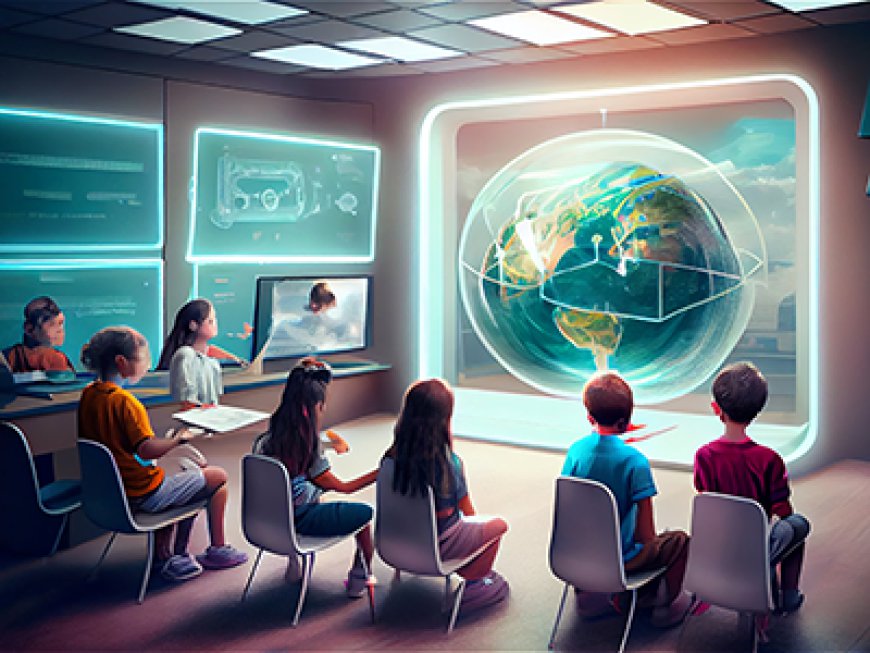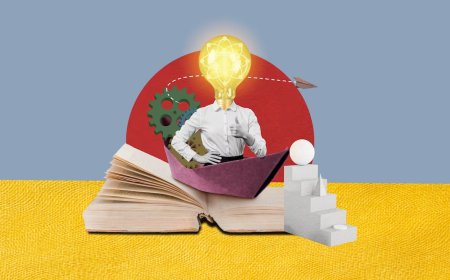Education is an ever-evolving field, constantly adapting to the needs of an advancing society. In recent years, one of the most prominent and trans formative advancements in education is the integration of Artificial Intelligence (AI) in classrooms.
This article aims to delve into the potential impact of AI on education in India, examining its benefits, challenges, and the way forward in harnessing this powerful technology for the betterment of Indian students.

1. Personalized Learning and Adaptive Assessments
One of the key advantages of AI in education is its ability to personalize learning experiences. AI-powered educational platforms can analyze students' strengths, weaknesses, and learning styles to deliver tailored content and adaptive assessments. This personalized approach ensures that students receive targeted support, enabling them to learn at their own pace and maximize their academic potential.
2. Intelligent Tutoring and Virtual Assistants
AI-powered intelligent tutoring systems and virtual assistants can provide students with instant feedback, guidance, and support. These tools can simulate one-on-one interactions, helping students navigate complex concepts, answer questions, and solve problems. By leveraging AI technology, Indian classrooms can benefit from enhanced learning experiences and increased accessibility to educational resources, regardless of geographical constraints.
3. Data-Driven Insights for Educators
AI enables educators to gather and analyze vast amounts of data to gain valuable insights into student performance, learning patterns, and areas of improvement. By leveraging data analytics, educators can identify individual and collective learning needs, and design personalized learning plans. This data-driven approach empowers teachers to make informed decisions and provide tailored support to students, ultimately enhancing the overall quality of education.
4. Enhancing Collaboration and Critical Thinking
AI can facilitate collaboration among students, both within and beyond the classroom. Through AI-powered platforms, students can engage in virtual discussions, collaborative projects, and peer-to-peer learning. These opportunities foster teamwork, communication skills preparing students for the collaborative work environments they are likely to encounter in their future careers.
Read More:
Bridging the Gap: Empowering Rural Education in India
5. Ethical Considerations and Human-Centric Approach
While AI presents numerous opportunities, it is crucial to address ethical considerations and ensure a human-centric approach. As AI becomes more prevalent in Indian classrooms, it is important to strike a balance between technology and human interaction. Educators must actively guide students in developing ethical reasoning, empathy, and digital citizenship skills to navigate the ethical challenges associated with AI.
Conclusion
The integration of Artificial Intelligence in Indian classrooms holds immense potential to revolutionize education. By embracing AI technology, we can create personalized learning experiences, enhance collaboration, and provide valuable insights for educators. However, it is crucial to adopt a human-centric approach, focusing on ethical considerations and maintaining the crucial role of teachers in guiding and nurturing students. By harnessing the power of AI responsibly, we can shape the future of education in India and empower the next generation with the skills necessary to thrive in an increasingly technology-driven world.
Follows Us for More Updates
Like Us on Facebook Page :
Click Here
Like Us on Instagram :
Click Here






























